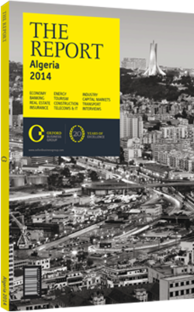Mourad Naït-Abdesselam, Country General Manager, Microsoft, on fostering innovation and competitiveness with cloud technology

In the World Economic Forum’s “2014 Global Competitiveness Report”, Algeria was still in a transitional phase between stage one, “factor driven”, and stage two, “efficiency driven”, while developed countries and some emerging countries such as the UAE and Qatar are already in stage three, “innovation driven”.
Today cloud and mobile technology play a key role in helping people and organisations be more productive and more innovative, and improving the overall competitiveness of the economy. Algeria is lagging behind some other emerging countries, ranking 127th for government procurement of advanced technology products, 133rd for quality of scientific research institutions, 136th for technological readiness, 141st for innovation, 144th for availability of latest technologies, 146th on university-industry collaboration in research and development, and 147th for both firm-level technology absorption and for capacity for innovation. Algeria has a growing young and educated population, and the above rankings do not adequately reflect the country’s massive potential.
Cloud computing has now become both mainstream and affordable. What is particularly interesting for small and medium-sized enterprises (SMEs) is that the cloud effectively levels the playing field. Before the cloud, SMEs were at a disadvantage when it came to the technological infrastructure they could afford to install and maintain. With the cloud, SMEs can rapidly meet demand and provide high-level reliability to their customers without having to make large, up-front infrastructure investments. The cloud is enabling all businesses to use technology more efficiently and cost effectively than before. It gives businesses flexibility, as renting one machine for 1000 hours is equivalent to renting 1000 machines for one hour in terms of computing power and capacity. This will enable businesses to rapidly accomplish complex tasks that were previously limited by cost or time constraints.
Cloud technology will also enable new applications to be rapidly deployed, as IT departments no longer need to worry about the back-end infrastructure to support them. It will enable cost savings as well, as companies are able to drastically limit their capital expenditure and maximise their return on investment for their IT spend.
Cloud technologies offer Algerian companies a real opportunity to take a leap and transform their way of working, allowing them to bridge the digital gap and achieve world-class organisational management. Cloud solutions empower individuals and organisations to do more, more quickly, more efficiently and with more power. The cloud reinvents productivity and offers a powerful, sustainable and secure platform for better and quicker innovation at a very affordable cost.
Rapid innovation is an area in which Algerian organisations can greatly benefit, particularly in the start-up segment and in university research laboratories. If we take research as an example, most laboratories in Algeria do not have adequate IT infrastructure or modern equipment compared to Western laboratories. With cloud technologies, a biology student can provision powerful servers and storage in the cloud to decode the human genome in a matter of minutes, and just pay for the consumed resources, for only the time these resources were used. The same could be concluded for other disciplines that require high computing needs, such as a mechanical engineer who needs to make a rendering of fluid mechanics, or a civil engineer who needs to simulate the seismic resistance of a structure, or an architecture student who needs to render a large 3D environment.
The cloud also empowers innovators to focus on rapidly resolving concrete challenges, such as the traffic problem in Algiers. Deployed sensors and GPS trackers can be connected to a cloud intelligent system that collects data in real time and applies machine learning algorithms to provide tangible insight into how to manage traffic congestion, such as where to put traffic lights, how long to show the green light for and at what time of day. This is the first step in creating a real smart city, in the spirit of Microsoft’s CityNext concept.
You have reached the limit of premium articles you can view for free.
Choose from the options below to purchase print or digital editions of our Reports. You can also purchase a website subscription giving you unlimited access to all of our Reports online for 12 months.
If you have already purchased this Report or have a website subscription, please login to continue.

